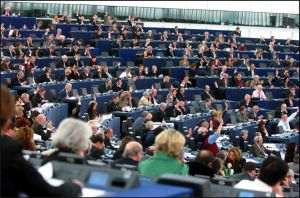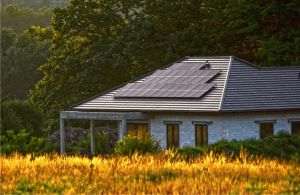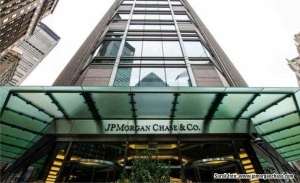Entrepreneurship is one of the key elements of the economic development of our country, which has shown resilience following the multiple crises that have marked the macroeconomic climate in recent years. There is potential, but it must be supported by government initiatives, funding and the achievement of objectives at country level, according to the opinions expressed yesterday at the "Economic Trends 2024" conference, organized by the European Patronage of Business Women, organized by the European Patronage of Business Women.
• Florin Spătaru, Chancellery of the Prime Minister: "From the perspective of the Government, the Romania of the future will be sustainable, industrial and entrepreneurial"
Florin Spătaru, State Counselor at the Prime Minister's Chancellery, stated that, from the Government's perspective, the Romania of the future will be sustainable, industrial and entrepreneurial, he said His Majesty said: "In the year 2024, Europe is being redefined and the future must be planned differently than we have done in the last 30 years. Romania has potential for growth, being by far a leader in terms of economic growth. We did it between 2011 and 2020 and we are still in a period of economic growth. 2024 is a year of decline but below the European average, and the latest OECD report says that in 2025-2026 we will have an increase of over 3%. We achieve this with the help of Romanian entrepreneurship".
The State Councilor added: "From the perspective of the Government of Romania and myself, as a former minister of the economy, the Romania of the future will be sustainable, industrial and entrepreneurial. The new challenges are digitization, industrialization, bringing the Romanian economy back to the center of the European economy, which understood after 30 years that it cannot use only labor, only knowledge, and that production be outsourced elsewhere. Romania's GDP can increase four times by 2040. This increase will be done with applied policies, strategies, but also with money. Because starting with the pandemic crisis of 2022, it has been demonstrated that the partnership between the state and the business environment is the generator, the multiplier of economic growth. We want this partnership, we want the business environment and female entrepreneurship to become a cornerstone for Romania and more than that, to show that Romania understands that this gender inclusion leads to economic growth".
• Dan Armeanu, vice-president of ASF: "Adherence to the euro would be a pillar of macroeconomic stability for Romania"
Dan Armeanu, vice-president of the Financial Supervisory Authority (ASF), is of the opinion that joining the euro would be an important pillar of macroeconomic stability for our country, along with joining NATO and the European Union.
He said: "From the point of view of macroeconomic stability, Romania is in a very good position which is based mainly on two pillars. They were built in the last twenty years and represent the accession to NATO and the accession to the European Union. The importance of these pillars has been seen recently, in the context of multiple crises - the crisis in Ukraine, inflation or the Covid crisis".
According to the vice-president of the ASF, the importance of the two pillars can also be seen over time, from a macroeconomic point of view. "20 years ago, in Romania the GDP per capita was somewhere over 30% of the European average, and now we have reached almost 80%. Their influence in the development and ensuring stability at the level of Romania can be seen very clearly", But our country still needs the third pillar of macroeconomic stability, Dan Armeanu believes. "It is very important, it will ensure qualitative development on a sustainable and long-term path, and it is about joining the euro currency. This would be the third pillar of macroeconomic stability that Romania can build. Of course, the two country goals that we have at the moment - joining the Schnegen space and joining the OECD are two other pillars that will generate macroeconomic stability".
• Radu Hanga, BVB president: "The role of our local capital market is to finance local entrepreneurship"
Radu Hanga, president of the Bucharest Stock Exchange (BVB), stated that the role of our local capital market is to finance local entrepreneurship. His Majesty said: "One of the pillars on which we can build the growth of the Romanian economy is the capital market. Broadly speaking, there are two sources of financing for Romanian companies. One is bank credit, and this is where we've seen significant growth over the last 20-25 years. On the other hand, we now also see the capital market increasingly positioning itself as a source of financing for local companies. And when we talk about the capital market we implicitly talk about entrepreneurship and local companies. In general, a foreign company, which has foreign capital, will finance itself in the country of the parent company, because the costs of financing are usually the lowest there. Under these conditions, the role of the local capital market is to support and finance local entrepreneurship.
Radu Hanga added: "When a company needs money, it can apply for a loan, but the first question it receives at the bank when it wants to make a loan is related to the capital it owns. If we want to continue to develop the banking industry, we need to build access to capital for local companies."
• Alexandru Petrescu, ASF President: "Stability is the word I care most about in my mandate"
The year 2023 showed the first signs of moderation of the crisis we are going through and with the reduction of energy prices and inflation began to subside, said Alexandru Petrescu, the president of ASF. "And we in Romania are on a downward trend that I obviously wish was steeper, but clearly the trend is good. The markets that we regulate at ASF are stable and stability is the word I care most about in my mandate", said Petrescu.
According to his rule, in the insurance market the premiums written last year amounted to almost 19 billion lei, increasing by more than 10%, the cumulative assets of pension funds amounted to almost 132 billion lei, increasing by almost 30 %, and the capital market reached a market capitalization of more than 300 billion at the end of last year. "We managed to mark the transition from frontier to emerging market, at least from the FTSE perspective, but I know that other evaluators are also being discussed and we will stabilize as a perception, as a way and portfolio of investment options as an emerging market. The prospects are good from my point of view (...). We also feel the elements of volatility, all the proximity indices are still above the equilibrium price. Whether we're talking about the stock market shares, which were also on the plus side on the domestic capital market, we need stability in management, we need predictability", says Petrescu, adding: "In a European Commission report that - I read this morning, an alarm signal is also raised regarding what permanence in management means (...). Without people who have perspective and mandates for four or five years, nothing can be built".
• Ciprian Dascălu, BCR chief economist: "Household consumption will be the main factor of economic growth this year"
In the opinion of Ciprian Dascălu, the chief economist of the BCR, household consumption will be the main factor in the economic growth of our country this year. Ciprian Dascălu said: "The growth of Romania's economy last year was 2.1% and compared to the potential of 3.5% - 4% it seems quite small. If we compare it with the economies of the region, we see that in Hungary there was a decrease of 0.9%, in the Czech Republic of 0.4%, Poland barely had an increase of 0.2%, which seems like a performance.
And the structure of last year's growth seems very balanced, maybe even the most balanced mix we've had in the last decade". The economist added: "In the second part of last year we saw a strong return of consumption. Practically, real wages adjusted with inflation in Romania recovered all the loss of the inflationary shock starting from August. That is, real incomes went into surplus. We are the only country in Central and Eastern Europe (where real incomes are positive) and this has already been seen in consumption in the fourth quarter. For this year we are relying on consumption. At an average inflation of 5.9% we see average wage growth of 11.2% or maybe even more - over five percentage points real wage growth. We expect that the main factor of economic growth this year will be household consumption".









































